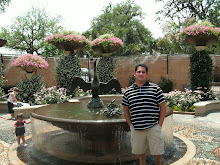PORT-AU-PRINCE, Haiti – The 10 U.S. missionaries facing trial for trying to take a busload of children out of Haiti should be released from jail while an investigation continues, a Haitian judge said Thursday, giving the Americans their best news since their arrests nearly two weeks ago.
Judge Bernard Saint-Vil has the final word on whether to free the missionaries, though he gave the prosecutor-general the opportunity to raise objections. He said he was accepting defense attorneys' request to provisionally free the Americans while an investigation of the case continues.
It is unclear when the missionaries, most from an Idaho Baptist church group, might be released, and Saint-Vil said it was too early to say whether they would be able to leave this earthquake-crippled Caribbean nation if granted provisional freedom. It is also unclear what bearing releasing the missionaries might have on whether they go to trial.
Saint-Vil on Thursday privately questioned the last of a group of parents who said they willingly gave their children to the Baptist missionaries, believing the Americans would educate and care for them.
"After listening to the families, I see the possibility that they can all be released," Saint-Vil told The Associated Press. "I am recommending that all 10 Americans be released."
It wasn't known late Thursday whether the prosecutor had received Saint-Vil's formal recommendation. The prosecutor couldn't be reached for comment.
The Americans were charged last week with child kidnapping and criminal association after being arrested Jan. 29 while trying to take 33 children, ages 2 to 12, across the border to an orphanage they were trying to set up in the Dominican Republic.
The following day, group leader Laura Silsby of Meridian, Idaho, told the AP the children were obtained either from orphanages or from distant relatives. She said only children who were found not to have living parents or relatives who could care for them might be put up for adoption.
However, at least 20 of the children are from a single village and have living parents. Some of the parents told the AP they willingly turned over their children to the missionaries because they could no longer feed or otherwise care for them — the children's school and many of their homes collapsed in the quake.
State Department spokesman P.J. Crowley said Thursday that Secretary of State Hillary Rodham Clinton had not personally intervened in the case, as the U.S.-based legal team for one of the missionaries, Jim Allen of Amarillo, Texas, requested in a Tuesday letter.
"We have been very careful not to intervene specifically in this case," Crowley said. "This is a matter for Haitian authorities to resolve."
Crowley added that Washington was "satisfied with the overall conduct of this case."
The pastor of the Meridian, Idaho, church attended by several of the detainees said he had yet to receive any official word on their release.
"Our confidence continues to remain, both in our faith and in our attorneys that represent our people," said Pastor Clint Henry, of Central Valley Baptist Church. "Now we wait and pray, believing that in the coming hours we will receive the news we have waited for."
On Wednesday, from behind cell bars in the stuffy, grimy jail where they have been held, the missionaries refused to be interviewed.
"We've said all we're going to say for now. We don't want to talk now," Silsby said. The women were held separately from the men, who shared their cell with nine Haitian men, some of whom played checkers on the cell floor.
"We will not talk unless our lawyer is present," said Paul Thompson, pastor of the Eastside Baptist Church in Twin Falls, Idaho.
Silsby decided last summer to create an orphanage in the Dominican Republic and in November registered the nonprofit New Life Children's Refuge Inc. in Idaho.
After Haiti's catastrophic Jan. 12 earthquake, she accelerated the plan and recruited her fellow missionaries. Silsby told the AP she was interested only in saving suffering children.
However, she did not have the Haitian papers required to take the children out of the country, and a Dominican diplomat told the AP he warned her the day the missionaries were arrested that without those papers she could be arrested.
Haitian government officials view the case both as a distraction to the greater issues of earthquake relief and as a matter of national sovereignty. The prospect of child trafficking is taken seriously here, and the Americans' case has provided a government widely criticized at home for its response to the quake an opportunity to show it is functioning.
The case has tapped into fears in Haiti that traffickers would take advantage of the chaos immediately after the quake to abduct children. It also has irritated Haitian government officials conducting business out of the same police station used to jail the Americans. Nearly every government building was destroyed in the quake.
Prime Minister Jean-Max Bellerive has lamented the fact that journalists are paying more attention to 10 Americans than the 3 million Haitians in need of help.
Before the quake, prospective parents crowded every day outside the U.S. Embassy, waiting to apply for visas for the children they wanted to adopt. About 1,000 children were legally adopted by foreigners in 2008 — by French parents in nearly half the cases.
Thousands more Haitian children, orphaned and not, leave the country illicitly each year, according to the U.N. Children's Fund. They are forced into domestic or agricultural labor, used as sex slaves or sold on the clandestine market for adoption.
